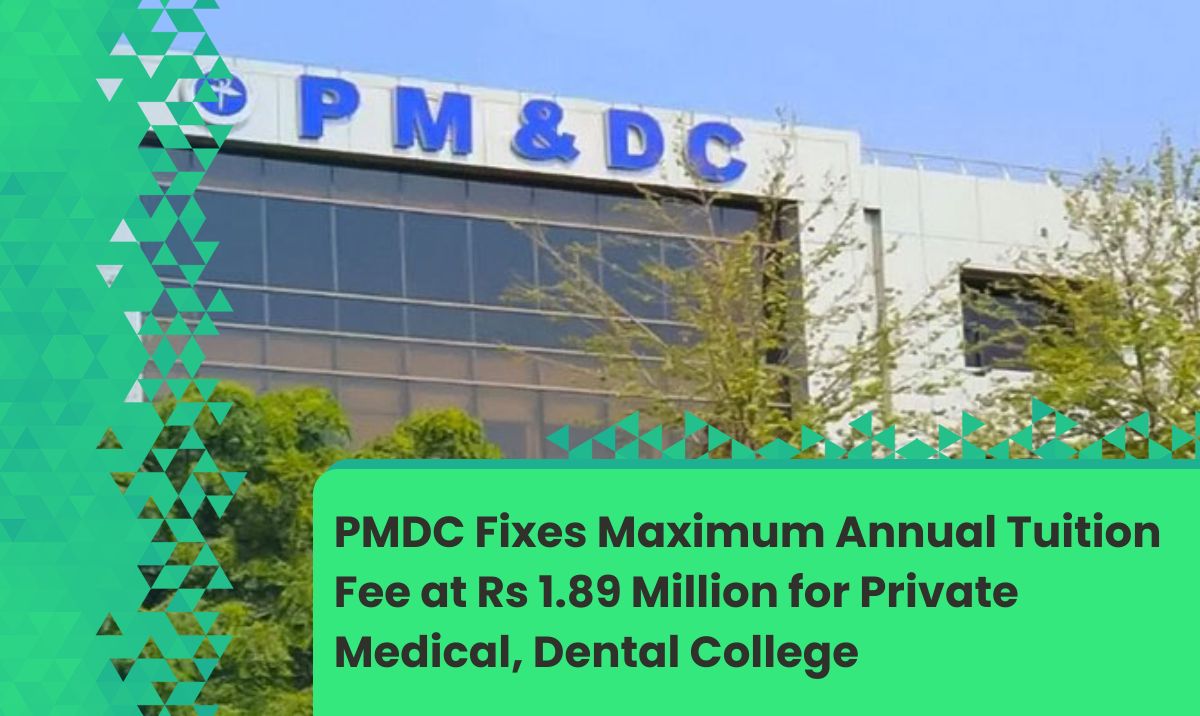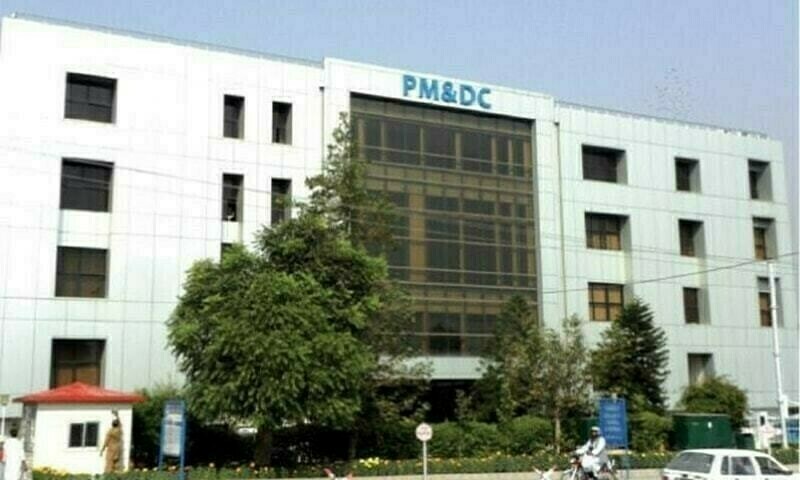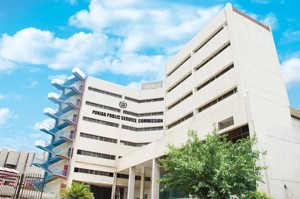
PMDC Fixes Maximum Annual Tuition Fee at Rs 1.89 Million for Private Medical, Dental College
In a major regulatory move, the Pakistan Medical and Dental Council (PMDC) has set the maximum annual tuition fee for private medical and dental colleges at Rs 1,890,000 for the 2025–26 academic session, marking a 5 percent increase over the previous limit of Rs 1.8 million.
The decision arises under the authority granted by the PMDC Act 2022, and reflects recommendations from a Medical Education Committee constituted by Prime Minister Shehbaz Sharif.
What the New Cap Means & Its Timeline
-
For 2025–26, institutions may charge up to Rs 1.89 million per year for MBBS and BDS programs.
-
This 5 percent increase is over the previous 2024–25 cap of Rs 1.8 million.
-
From 2026–27 onward, further annual adjustments will be linked to the Consumer Price Index (CPI) inflation rate, thereby tying fee growth to economic indicators.
-
Private medical and dental institutions are also required to publicly display the approved tuition fee structure at least three months before the start of admissions, in compliance with Section 20(7) of the PMDC Act.
-
Any college that charges or advertises fees beyond the cap risks disciplinary penalties under Section 33 of the PMDC Act, including suspension of accreditation or admissions, or other legal action.
Background & Push for Regulation
The issue of skyrocketing tuition fees in private medical and dental colleges has long been a source of concern for students and parents. In recent years, several institutions were accused of charging hidden extra amounts well above the stated cap.
Earlier attempts to regulate fees met resistance. For example, private college associations had pushed back on a rigid ceiling, citing rising operational costs (faculty salaries, utilities, equipment) and arguing that a single cap would not fit differing institutional needs.
In 2024–25, the PMDC capped fees at Rs 1.8 million. The move was supported by a Health Senate Standing Committee, after repeated objections from senators over unregulated fee hikes.
Prime Minister Shehbaz Sharif then formed a committee led by Deputy Prime Minister Ishaq Dar to review medical education reforms, which later recommended the fee structure changes.

Reactions & Challenges
From Students & Parents
Many parents have expressed frustration that despite the cap, their children admitted in earlier sessions were still being forced to pay much higher amounts, sometimes reaching Rs 2.7 million or more. They have appealed to government and PMDC authorities to intervene and ensure that past excess charges are corrected.
From Private Colleges & Institutions
Private college representatives have signaled concerns over viability under a strict cap. They argue that rising inflation, increasing utility costs, and faculty salary demands may force compromises in quality. Some institutions have been allowed to present financial justifications for requesting more than the standard cap (up to a maximum threshold) subject to PMDC evaluation.
In an earlier notification, institutions that had already charged fees above the Rs 1.8 million cap were directed to refund or adjust the difference in subsequent sessions.
Implications for Equity in Medical Education
This move is widely seen as an attempt to curb the commercialization of medical education in Pakistan and make entry into private medical and dental colleges more transparent and equitable.
Linking future increases to CPI is intended to balance institutional sustainability with affordability, limiting aggressive hikes. The public display requirement aims to reduce hidden charges and last-minute fee surprises.
However, enforcement will be critical. Without strict monitoring, some colleges may still find ways to circumvent or misrepresent fee structures.
Additionally, the policy does not necessarily address ancillary charges (lab, library, hostel, consumables)—areas that have historically been used to impose extra burdens on students.
What to Watch Going Forward
-
Enforcement Mechanisms: How actively will PMDC monitor and penalize violations?
-
Media & Public Disclosure: Will colleges reliably publish fees three months in advance and abide by them?
-
Appeals & Exceptions: Which institutions may succeed in obtaining permission to exceed the standard cap, and on what grounds?
-
Legal Challenges: Will affected institutions or students seek judicial review of the policy?
-
Quality Concerns: Can colleges maintain standards of education after absorbing cost constraints?
The PMDC’s decision to fix the maximum annual tuition fee at Rs 1.89 million for 2025–26 is a landmark attempt to bring order, predictability, and fairness to the private medical education sector in Pakistan. With inflation-linked adjustments built in, and stricter transparency and penalty provisions, the move may curtail unchecked fee hikes. But success will depend heavily on compliance, enforcement, and accountability in implementation.











.jpg)


.jpg)
.jpg)